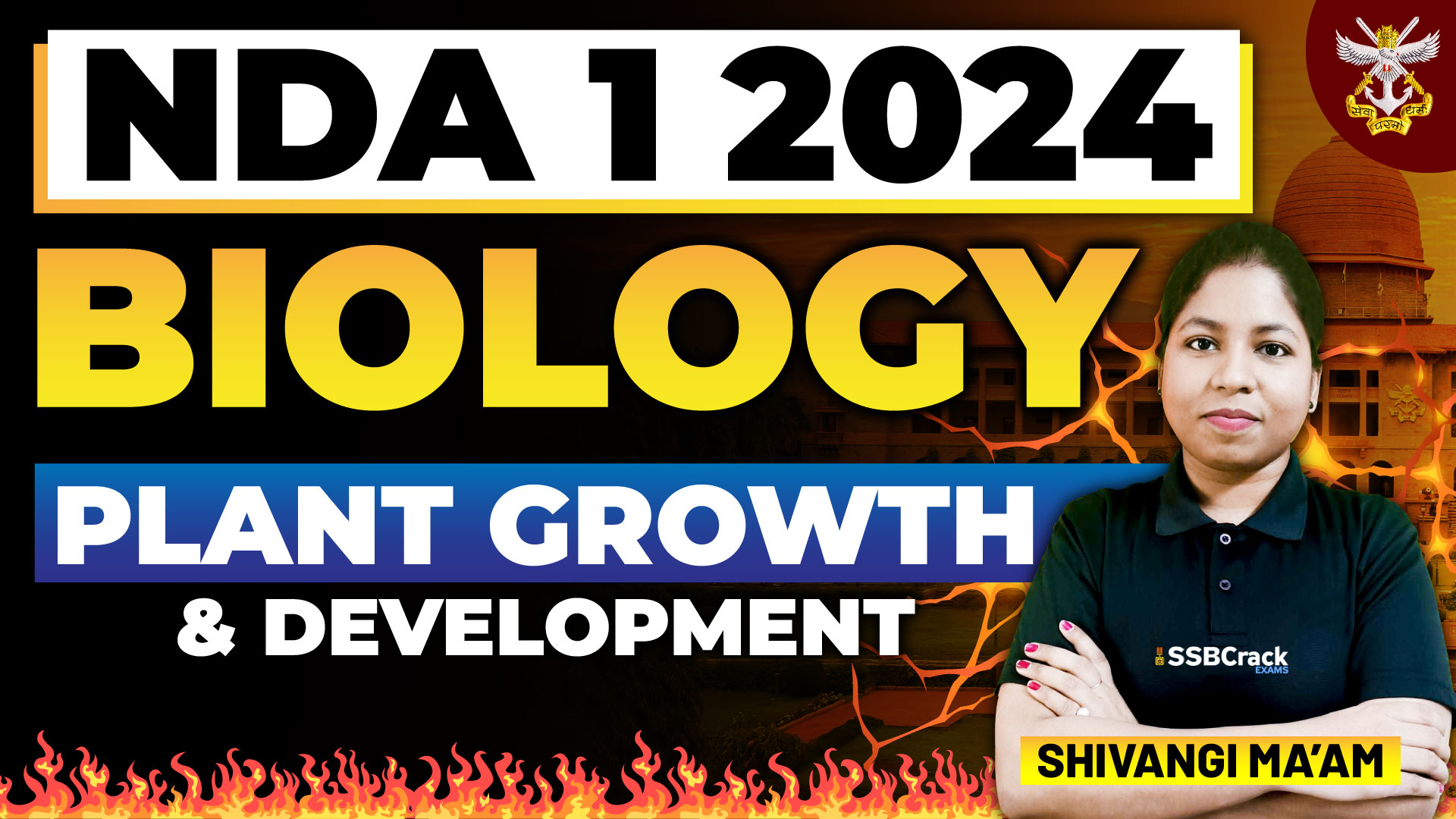Understanding the intricacies of plant growth and development is essential for anyone aspiring to excel in fields like agriculture, environmental science, or even defense. The National Defense Academy (NDA) Exam 2024 demands a thorough grasp of various aspects of plant biology, including plant tissue, reproduction, phytohormones, and their ecological significance. In this article, we delve into these fundamental concepts to equip candidates with the knowledge necessary to tackle questions on plant biology in the NDA exam.
Plant Tissue: Plant tissue is the foundation upon which the structural and functional integrity of plants is built. There are three primary types of plant tissue: dermal, ground, and vascular. Dermal tissue covers the outer surface of the plant, protecting it from physical damage and pathogens. Ground tissue forms the bulk of the plant body and is responsible for storage, photosynthesis, and support. Vascular tissue, consisting of the xylem and phloem, facilitates the transport of water, nutrients, and sugars throughout the plant.
Plant Reproduction: Plant reproduction can occur through sexual or asexual means, each with its advantages and disadvantages. Sexual reproduction involves the fusion of male and female gametes, resulting in genetic diversity. This process may occur through pollination in flowering plants, where pollen grains are transferred from the male reproductive organ (anther) to the female reproductive organ (stigma) for fertilization. Asexual reproduction, on the other hand, involves the production of offspring from a single parent, leading to genetic uniformity. Examples include vegetative propagation, fragmentation, and apomixis.
Phytohormones: Phytohormones, also known as plant hormones, are chemical messengers that regulate various aspects of plant growth and development. These hormones exert their effects at low concentrations and play crucial roles in processes such as seed germination, root and shoot growth, flowering, and fruit ripening. Major classes of phytohormones include auxins, cytokinins, gibberellins, abscisic acid, ethylene, and brassinosteroids. Each hormone has specific functions and interacts with others to orchestrate the plant’s response to internal and external stimuli.
Ecology: Plants are integral components of ecosystems, playing key roles in nutrient cycling, carbon sequestration, and habitat provision. Understanding plant ecology is crucial for assessing the impact of human activities on the environment and devising sustainable conservation strategies. Factors such as climate, soil composition, light availability, and biotic interactions influence plant distribution and abundance. Additionally, plants form symbiotic relationships with other organisms, such as mycorrhizal fungi and nitrogen-fixing bacteria, enhancing nutrient uptake and ecosystem productivity.
Conclusion: A comprehensive understanding of plant growth and development is indispensable for candidates appearing in the NDA Exam 2024, as it forms the basis for addressing questions related to agriculture, ecology, and environmental science. Mastery of concepts such as plant tissue, reproduction, phytohormones, and ecology empowers individuals to appreciate the vital role of plants in sustaining life on Earth and devising strategies for environmental stewardship and defense. By grasping these fundamental principles, candidates can confidently navigate the complexities of plant biology and excel in the examination.







